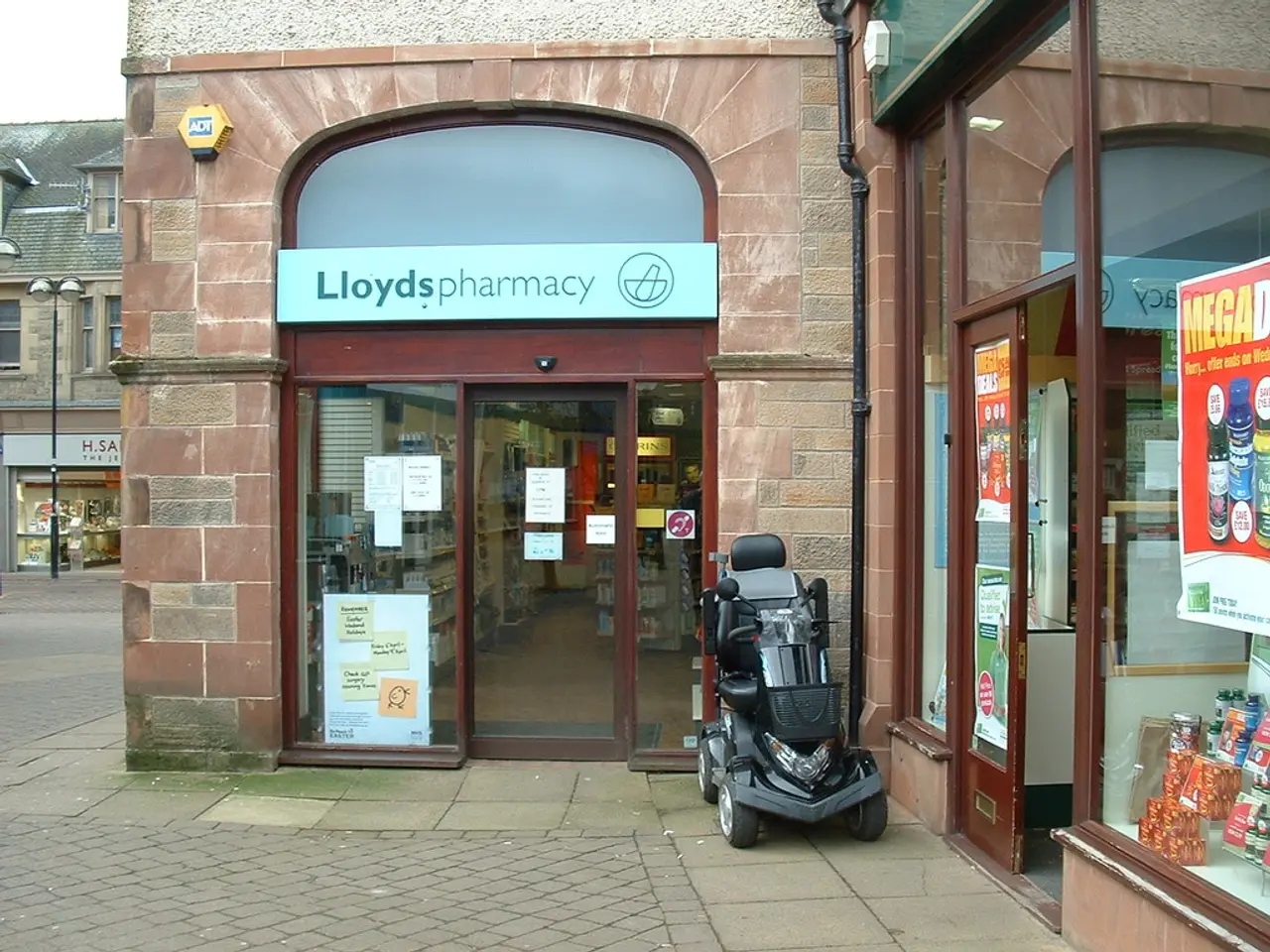Dramatic 21% plunge in Novo Nordisk shares, marking one of their worst days in four decades, amid anticipated decrease in Ozempic sales
Novo Nordisk, the Danish pharmaceutical giant, is facing a series of hurdles as the company prepares for a change at the top. On August 7, Maziar Mike Doustdar will take over as the new president and CEO, replacing Lars Fruergaard Jørgensen.
The company's stock has been on a downward spiral, with a 21% decline on Tuesday marking the largest decline since April 2002. This drop comes as Novo Nordisk lowers its full-year profit growth target to between 10% to 16%, down from earlier estimates of 13% to 21%. The lower target is also reflected in the company's sales growth, which has been revised to between 8% to 14%, down from an initial target of 13% to 21%.
The Q2 earnings report, scheduled for release on Aug. 6, will provide more insights into the company's financial performance. However, the company's sales growth for its obesity and weight loss treatments is expected to slow in the U.S. due to persistent use of compounded alternatives.
The use of compounded drugs, which are altered to meet a patient's needs, has continued despite the Food and Drug Administration (FDA) indicating it would take action against distributors by April 22. Novo Nordisk has expressed concerns about the safety, effectiveness, and quality of these compounded drugs, particularly in the case of its weight loss and obesity treatments, Ozempic and Wegovy.
The FDA has declared shortages of Novo Nordisk's weight loss and obesity drugs as "resolved" and removed them from its shortage list. However, the agency has noted various concerns about compounded Ozempic and Wegovy and has warned of counterfeit Ozempic on the market. The counterfeit versions could cause adverse reactions like nausea, vomiting, diarrhea, and abdominal pain.
In response, Novo Nordisk has asked the FDA to outright ban compounded Ozempic and Wegovy. Despite the company's concerns, the FDA has not taken action against distributors of compounded drugs. Novo Nordisk claims that patients may be exposed to significant risks by using these knockoff drugs.
Under Doustdar, Novo Nordisk's international operations unit sales are expected to more than double to about $17.3 billion in 2024. This growth is a testament to the company's global reach and its commitment to improving the lives of people living with diabetes and other serious chronic conditions.
However, the challenges facing Novo Nordisk in the U.S. market are a reminder that the pharmaceutical industry is complex and dynamic, with numerous factors influencing a company's success. As Doustdar takes the helm, he will need to navigate these challenges while continuing to drive the company's growth and innovation.
References:
- FDA ends enforcement discretion for compounded versions of Novo Nordisk’s obesity and weight-loss treatments
- Novo Nordisk asks FDA to ban compounded versions of Ozempic and Wegovy
- FDA warns of counterfeit Ozempic on the market
- FDA raises concerns about illegally marketed and counterfeit versions of GLP-1 drugs
- As the new president and CEO of Novo Nordisk, Maziar Mike Doustdar may need to consider diversifying the company's investment portfolio, exploring areas beyond health-and-wellness, such as personal-finance and finance, to secure a stable future in light of the company's stock decline and lowered profit growth targets.
- The ongoing issue of compounded drugs, particularly for Novo Nordisk's weight loss and obesity treatments, has become a concern for business and health-and-wellness circles, as the Food and Drug Administration (FDA) has not taken action against distributors, potentially posing risks to patients and the company's reputation.
- Recognizing the potential of science and innovation, Novo Nordisk's international operations are predicted to double under Doustdar's presidency, expanding the company's influence beyond diabetes treatments and contributing to the health-and-wellness industry at large, while also impacting economic growth and investing opportunities in various global markets.




